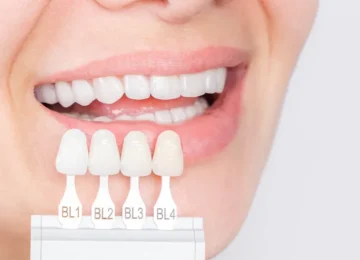Wisdom teeth are usually removed if they do, or are likely to cause problems. In many cases, wisdom teeth don’t break through the jaw and grow out, or only part of them does, and this is more common in the lower jaw. There is usually not enough room in the jaw as other teeth get in the way, so the wisdom teeth that do grow out might come in crooked.
Wisdom teeth that don’t break through are called impacted wisdom teeth. They often don’t cause any problems, but in some cases, they can lead to pain, swelling, tooth decay, or inflamed gums. They may also push other teeth out of the way.
When should you have your wisdom teeth pulled out?
Whether or not to have wisdom teeth pulled out depends on whether they are causing problems or it is likely that they will cause problems in the future. When making a decision whether to have your wisdom teeth pulled or not, there are a couple of things to take into consideration:
- Have they caused pain or damage to your jaw or nearby teeth?
- Is there an increased risk of them causing pain or damage?
- Are the wisdom teeth preventing the other teeth from developing properly?
- Will the wisdom teeth interfere with other dental or jaw-related planned treatments?
- What risks are associated with surgery?
- Could the wisdom teeth replace molars (back teeth) that are missing or badly damaged?
People who have small jawbone usually worry that wisdom teeth may push their teeth out of the place, but that is not necessarily the case.
Are there side effects of having wisdom teeth removed?
You may feel swelling in your mouth or cheeks after the operation or be unable to fully open your teeth for a few hours or days. You may also feel pain, but not for long. However, if the pain returns after a couple of days, gets worse, and is accompanied by swelling or bad breath, the wound could be infected. Antiseptic mouthwash or gel can help prevent these complications, and there is usually no need for antibiotics.
Nerves or blood vessels may be damaged during the procedure, causing bleeding and temporary numbness in the tongue or face. Less than 1% of people may face serious problems as the result of the procedure, like numbness or damage to nearby teeth.
How to treat the pain after the procedure?
Ibuprofen and acetaminophen (paracetamol) can be used to relieve pain after the operation. Keep in mind that acetylsalicylic acid in medications like aspirin is not recommendable neither before nor after the procedure because it increases the risk of bleeding.
Holding the ice pack against your cheek for a few days after the wisdom tooth extraction can help reduce swelling. Family dentistry Harrisburg NC advises avoiding smoking cigarettes, drinking fruit juices, or hot drinks for a few days since they can slow down the healing process. It is better to drink still water or lukewarm chamomile tea. Hard foods can also cause problems, so we recommend soups and foods that are easier to eat, such as potatoes, fish, or pasta.
You should also avoid doing strenuous physical activities or going to the sauna in the first few days, even if you are already feeling better.











